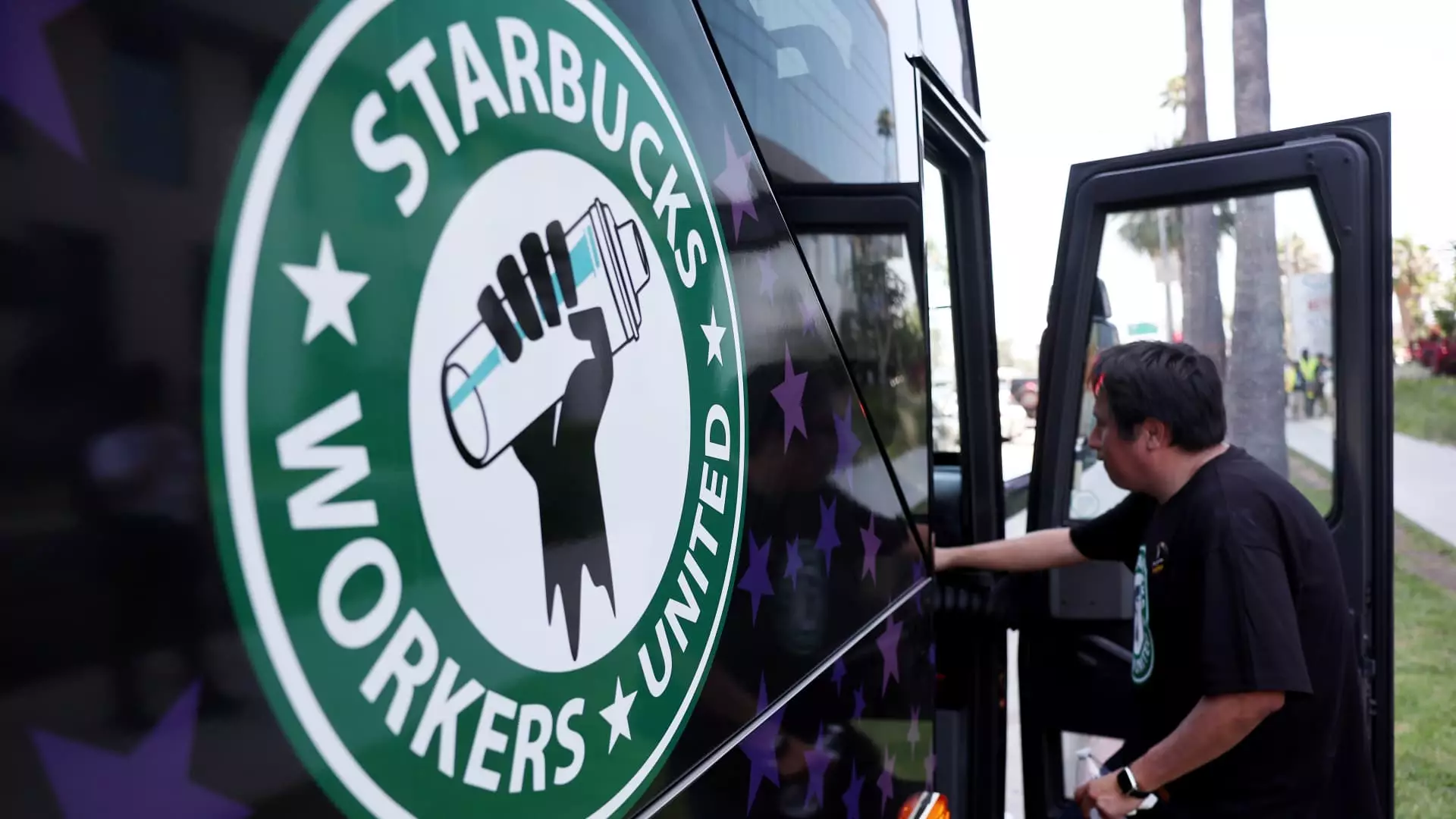The recent developments within Starbucks have set the stage for a potential strike, signaling a crucial juncture in labor relations at the global coffee chain. On Tuesday, Starbucks Workers United announced that a staggering 98% of unionized baristas have voted in favor of authorizing a strike as their negotiations with the company reach a critical impasse. This overwhelming vote showcases the frustration and urgency felt by workers as they seek a fair contract amid ongoing negotiations, highlighting the pressing need for improved pay and benefits.
Negotiators from both Starbucks and Workers United are scheduled to reconvene in what may be the last bargaining session of the year, with hopes of establishing a “foundational framework” for an agreement. Despite hundreds of hours dedicated to discussions and the introduction of various tentative agreements, significant challenges remain. According to the union’s statements, numerous unfair labor practice allegations are unresolved, further complicating the negotiation landscape. Baristas claim that the company has yet to present a comprehensive proposal addressing critical issues such as wages and benefits, implying dissatisfaction with the existing negotiation framework.
In response to the union’s claims, Starbucks has vehemently disputed the narrative, asserting that their bargaining efforts have been productive. The company contends that they have engaged in multiple comprehensive sessions, resulting in meaningful agreements on important topics, including various economic matters that the union’s representatives have identified as priorities. This divergence in perspectives reveals a significant rift between labor and management, suggesting that while progress has been made on some fronts, fundamental issues remain unresolved.
The decision to authorize a strike is particularly noteworthy given the recent thawing of relations between the union and Starbucks, which seemed to improve after months of confrontation. In February, both parties expressed optimism following a successful mediation effort, hinting at a possible collaborative future. However, the latest developments signal a regression, suggesting that underlying tensions resurfaced as both sides grapple with issues of power, profitability, and labor rights. The narrative surrounding the union movement has also been influenced by public perception, with recent anti-union actions provoking backlash from consumers and political figures alike.
The Road Ahead: Challenges and Commitments
Starbucks’ new CEO, Brian Niccol, has seemingly pledged to engage in good-faith negotiations, emphasizing his commitment to a constructive approach. Yet, his announcements—like the decision to double paid parental leave—might be overshadowed by reports of below-average pay hikes amidst a sales slump. With more than 500 Starbucks locations voting to unionize since the first such elections in Buffalo three years ago, the company faces a pivotal moment. Whether Starbucks can navigate these complex labor dynamics and ultimately appease its workforce will likely define its corporate ethos in the years to come.
The situation at Starbucks is emblematic of a broader struggle within the labor market, where workers’ rights and corporate policies often clash. As the negotiations continue, the outcome will not only affect Starbucks employees but also resonate through the wider landscape of labor relations nationwide.

